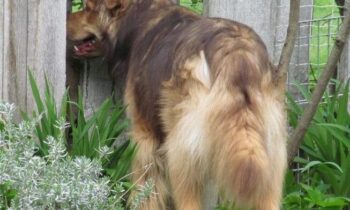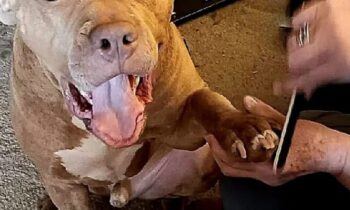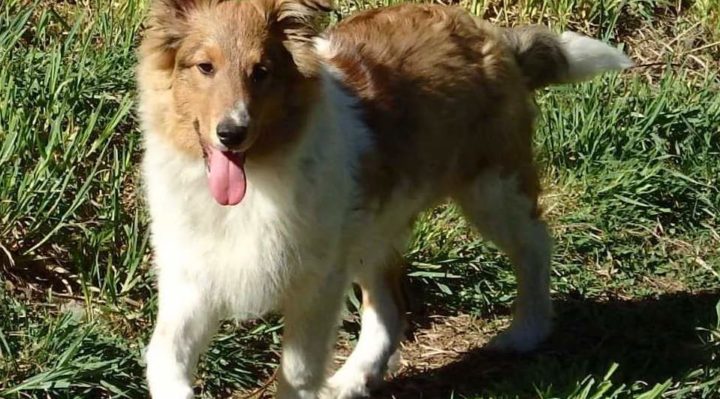
September Morn is a professional dog trainer and the author of several books and many articles about dogs and training. Her other interests include gardening, spinning, weaving, and foraging for dye mushrooms and medicinal herbs. September shares her heart and her mini-farm with two Rottweilers, 46 chickens, and a Shetland sheepdog puppy adopted during the COVID pandemic.
In March, September told us about her decision to adopt a puppy and to raise that puppy with the constraints of pandemic protocols and quarantines. Now September shares Daisy’s story since then.
September B. Morn (Washington) Daisy, my Shetland sheepdog, is five months old now—about halfway to adulthood, but still definitely a puppy. Her house training is nearly complete, though not yet foolproof. She wasn’t using the potty pads any more, so I gave away almost two full bags of those.
Once in a while, after dark, she might still piddle on the floor. She’ll go outside to potty if I go with her though, so I chalk up those nighttime puddles as my fault for not paying close enough attention.
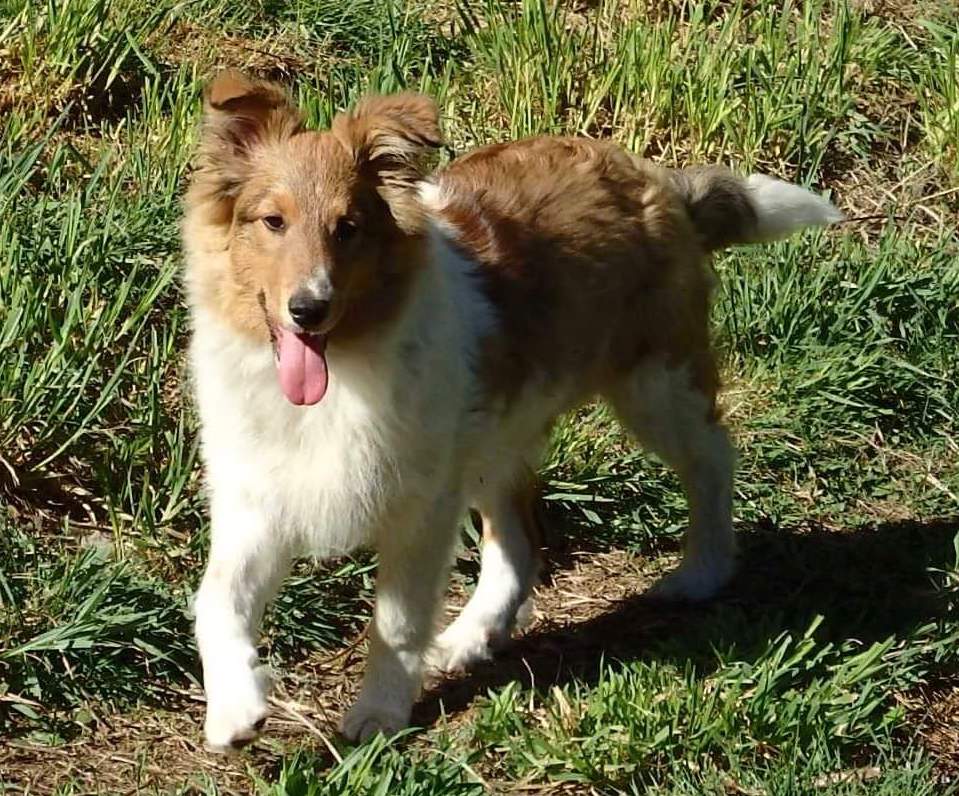
Photo by September Morn
This pup is becoming a real pro at chicken herding these days. She’s quite businesslike about it. She doesn’t chase them or frighten them to get them to move—she just calmly stares and moves the right way to put them where she wants them. She doesn’t even need to bark at them to get them to go—or stay—where she tells them.
A couple of weeks ago, I took Daisy to a farm where she could be introduced to sheep and ducks. Dogs go there to learn the fine points of competitive herding. She’s not ready for the actual training yet, but old enough to see if she has the right instinct.
Ducks tend to stay grouped close together, unlike chickens, which will scatter in every direction. Because of this, ducks are used in herding competitions but chickens never are. Daisy is used to chickens and to needing to convince the individual birds to go or stay.
The ducks she met stayed in a tight little group and clustered near the fence. Daisy didn’t know the expectation was for her to chase them around the arena. Apparently, she didn’t think they needed herding, so she just watched them.
When Daisy didn’t run up and try to chase the ducks, the instructor made a slightly dismissive comment that “dogs either have the instinct or they don’t.” So imagine her surprise when, an hour later, Daisy met a fairly naughty group of sheep and knew immediately to circle around them to keep them together. Yep, they either have the instinct or they don’t—and Daisy has it, for sure.
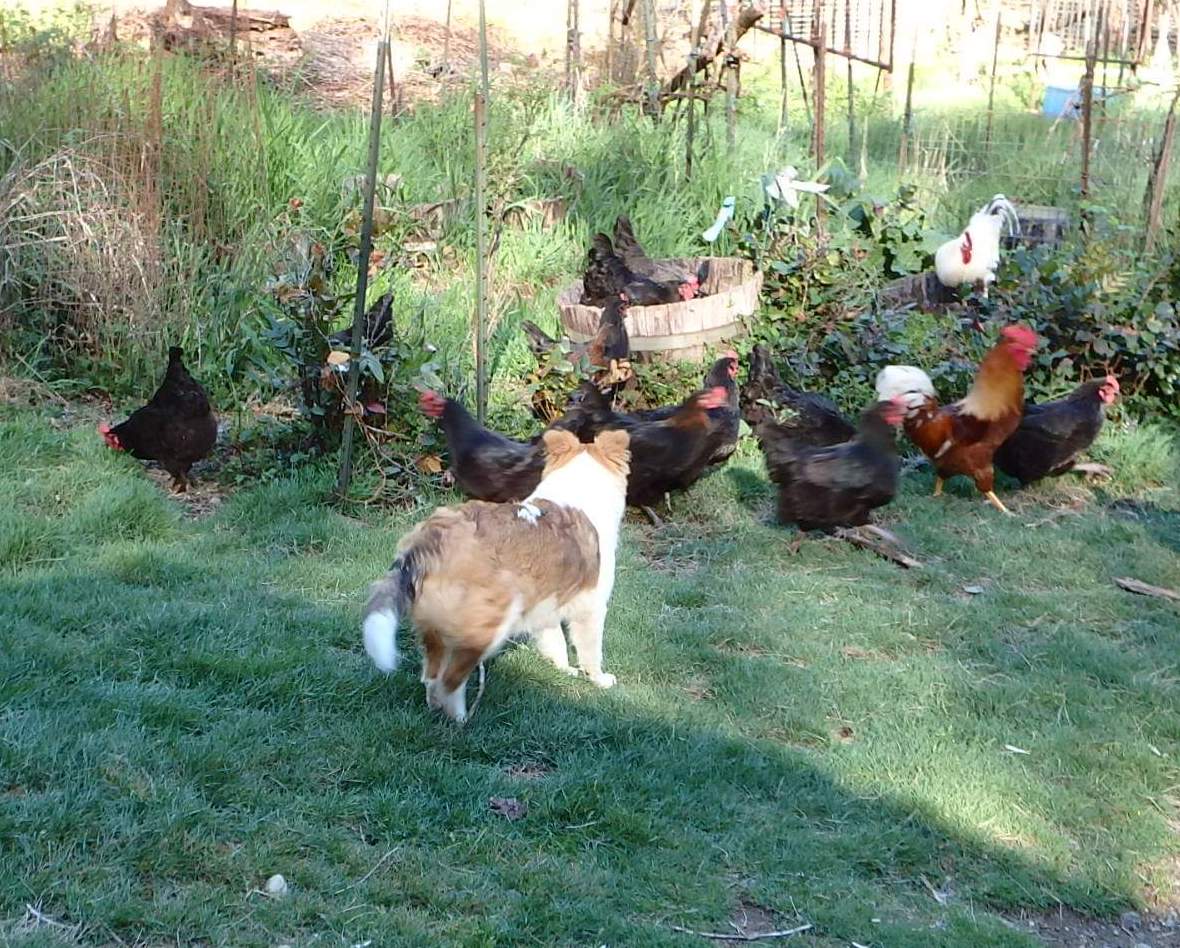
Photo by September Morn
Folks who know Shelties are aware that they can be very barky dogs. When I first got Daisy, she barked loudly at everything and also barked to demand release from her pen in the living room as soon as she’d finish her dinner in there.
I taught her right away that I would not respond to her yelling at me. I would don a pair of sound-deadening ear muffs and keep my back turned to her until she quieted. When she’d finally quiet for a minute, I’d turn around and smile and talk sweetly and let her out. It took only a few days for her to learn that screaming bore no fruit in this house.
Dogs will bark, though, and that’s okay. But Shelties can bark loud enough to make my ears ring, so Daisy needed to learn to use her “indoor voice.” When she’d bark at full volume, I’d interrupt with one startling, fairly loud, command to “QUIET!” Then I would whisper to her, “Good quiet, good girl.” It took a few weeks, but she learned to modify her indoor barking to a tolerably quiet “woof,” instead of full volume. It helps that my other dogs, two mature Rottweilers, are already quiet in the house. They bark only when there’s something important to bark at.
The Rotties do love to howl at sirens, though, and where we live we often hear emergency vehicles race by with sirens blaring. My Rotties know to run outside to do their howling and, oh, my goodness, it’s loud. We have no nearby neighbors, so it doesn’t bother anyone and I allow it—it’s a good release and they enjoy it. They even harmonize when they howl and I like listening to it.
Daisy soon learned that sirens give permission to make as much noise as the dogs want to. Her hearing is excellent and she detects the sirens before the Rottweilers know they’re coming, so she’s now the siren vanguard. When she hears one, she woofs a couple of times with her indoor voice, then runs outside. The Rotties follow her out and the three of them have a wonderful noise fest together for a few minutes. The puppy barks as loud as she can while the big boys howl.
The Rotties know to stop howling when I clap my hands and say, “Cut!” Daisy has learned this now, too, and she immediately quits barking at the siren on that cue. We all think this is fun.
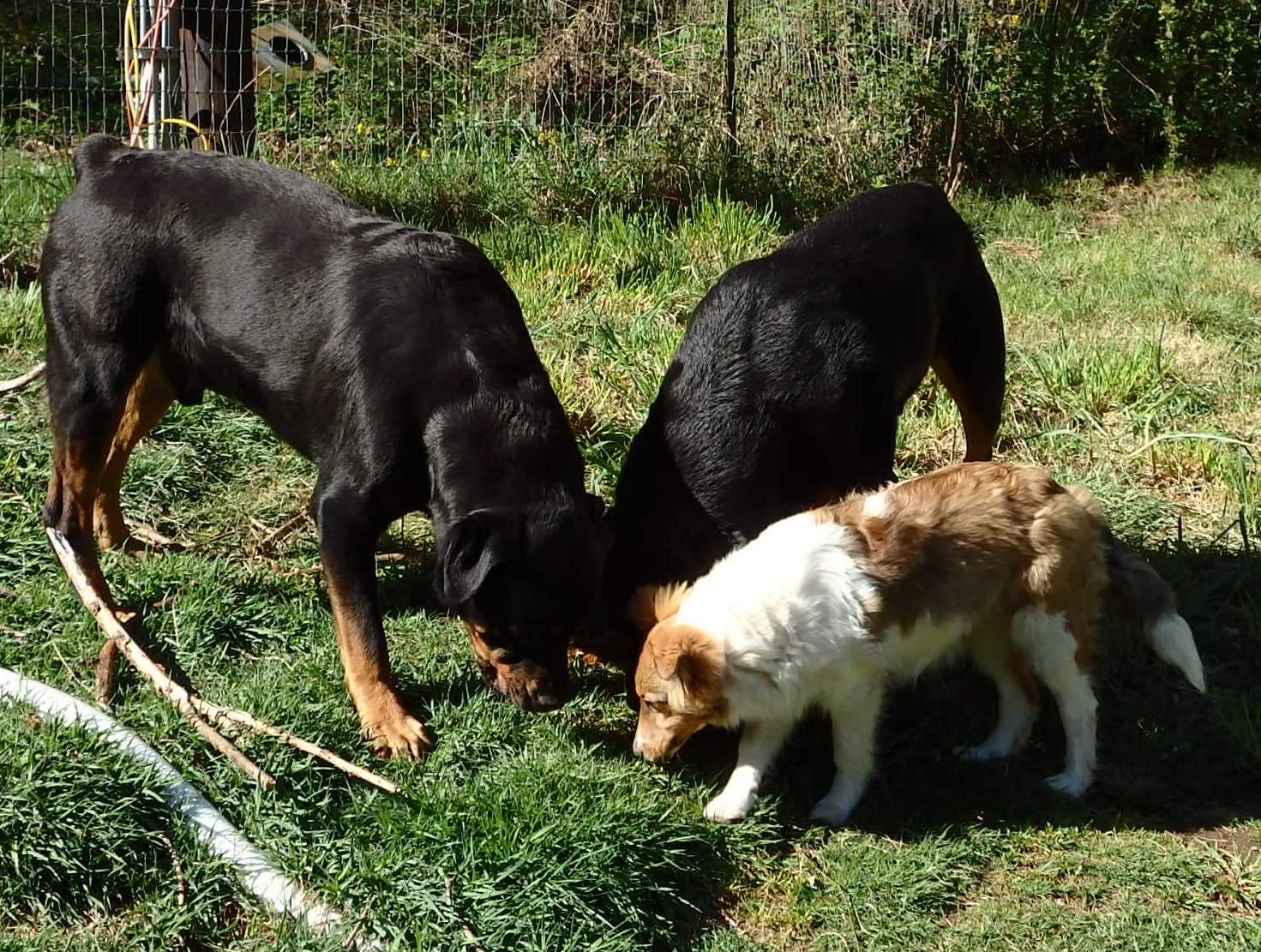
Photo by September Morn
Socializing a pup during the pandemic has been more of a challenge than in more normal times. So I’ve taken every opportunity to help Daisy meet nice people. I sell eggs from my home and have several regular customers who come to get eggs from the fridge on my front porch.
The dogs always let me know when one of these friends drives up. I keep a mask and a leash by the door, so I can take Daisy out onto the porch to visit. This has been very good for her. When I first got her, she was quite wary of people, but after she’d see someone a few times, she’d go up to them. She has gotten over her worries about “stranger danger” now and she is very friendly and sociable—even when first meeting new people.
She’s a bit more hesitant about meeting dogs, though. She was barked at by a dog who doesn’t like other dogs and that shocked her and made her wary of all new dogs. So we still have some work to do on that. I’m not too worried about it, though: she has made a few dog friends and she loves playing with my Rottweilers. Anyway, I think it’s more important for her to trust humans than to become instant buddies with every dog she meets.
I plan for Daisy to compete in Rally Obedience when she’s older. I haven’t yet started her training for that, but she’s coming along well on the basics. She sits, lies down, and walks politely on leash, although her formal heeling training has just begun. She’s super good about coming when called, even when she’s involved in something interesting—even when she’s herding her chickens! And I think coming when called is the most important skill a dog can learn.
Daisy still sleeps in her crate at night, for safety’s sake, but if I take a nap, she naps on my bed with me. In another month or so, she’ll be mature enough to trust during the night and I will share my bed for the rest of her life.
I’m thoroughly enjoying this puppy. She is sweet and smart and willing. She’s playful and gentle, too. She doesn’t do most of the naughty things all my other pups have done. You might have guessed by now—I’m crazy about Daisy!

